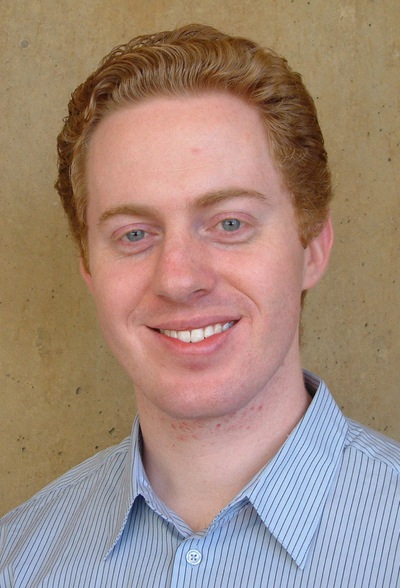Monday, Feb. 25, 2008 | 2 a.m.
The first recipient of the state-funded Millennium Scholarship to graduate from college went on to earn a doctoral degree in computer science from the University of California, Davis, in 2007.
Now, Daniel Coming, who returned to Nevada last year to work for the Desert Research Institute, is worried that other young, ambitious Nevadans won’t have the same educational opportunities he did.
In the brief years since Coming was an undergraduate at UNR — he graduated in 2002 — the benefits of the merit-based Millennium award have waned. The scholarship helps pay in-state college expenses for students who meet academic requirements upon high school graduation and during college.
Coming remembers taking 27 credits in each of his last two semesters in Reno. The scholarship covered all his fees. He finished college in two years.
Now, pinched financially, the Millennium program pays only the first $80 of the cost for each of the first 12 credits in a semester. A Millennium Scholar taking 27 credits at UNR today, as Coming did, would be stuck with an annual bill of about $4,400 in registration fees.
“Some students do better when they’re challenged, and if the scholarship limits students to 12 units, then they may actually perform worse out of boredom,” Coming said.
He added that taking fewer credits prolongs the time students are in school and paying for food, rent and other necessities. So the new Millennium rules leave young people with two unpalatable choices, Coming said: “Either they have to pay for additional credits, or they pay for more living expenses over time.”
Citing a drop in the percentage of eligible Millennium scholars attending state colleges since the Millennium’s establishment, a recent Nevada System of Higher Education financial aid report noted: “Nevada cannot continue to complicate eligibility requirements if we wish to continue to encourage our best and brightest students to remain in Nevada for their postsecondary education.”
• • •
On a more positive note, Coming, who was a valedictorian at Las Vegas’ Bonanza High School, says he’s glad to be back in Nevada.
An assistant research visualization scientist at DRI, he’s working on projects including a virtual reality simulation training program for members of the Nevada National Guard.
For the state’s education system to improve, Nevada must retain its intellectuals, Coming said.
• • •
Marla Renteria, 29, a legal secretary and single mom from the Reno suburb of Sun Valley, came to town this month to check out UNLV’s William S. Boyd School of Law.
A guide gave Renteria and other candidates interested in Boyd a tour and information about the school’s programs. What potential students didn’t hear is that the school is planning to double its in-state tuition over the next few years.
Under a proposal the Board of Regents will consider in April, law students would pay $20,000 in 2010-11, up from $9,800 this academic year.
Such a jump in tuition, Renteria said, “does increase the possibility I’m going to go somewhere else.”
Boyd’s price and location were the top reasons she applied to the school. She is already weighing a scholarship offer from an out-of-state institution that would make going there cheaper than attending Boyd.
How will other Nevadans react to the price increase?
Law school officials, of course, hope a tuition hike will not dampen applicants’ enthusiasm. Boyd, just a decade old, is tied for 100th place in the U.S. News & World Report best law schools’ ranking. The school attracted 1,714 applicants for about 150 spots last year.
Officials say the planned increases would bring Boyd’s tuition in line with that of many other Western law schools.
Money from increased tuition would go toward hiring fundraisers, faculty members and staff to bolster career services and other areas. Some of the new revenues will go toward improving student financial aid.
Miles Dickson, a UNLV alum and Boyd applicant, said a higher tuition is not deterring him so far.
“I don’t really object to the idea that the university is going to double tuition, so long as the students experience and see the benefits of that happening,” Dickson said.
Boyd officials will inform those who are admitted into the program about the potential increases, said Gian Galassi, a UNLV spokesman. And whether those aspiring lawyers think more like Renteria or Dickson, only time will tell.


Join the Discussion:
Check this out for a full explanation of our conversion to the LiveFyre commenting system and instructions on how to sign up for an account.
Full comments policy